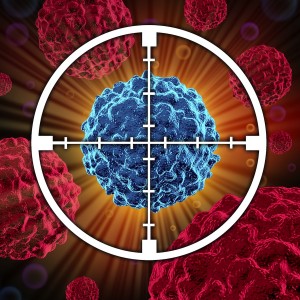One difficulty oncology care providers are faced with is penetrating cancer cells with chemotherapy. IPT (Insulin Potentiation Therapy) can allow chemotherapy to enter and damage cancer cells more selectively and effectively by utilizing chemotherapy in conjunction with glucose and insulin. According to medical studies, cancer cells utilize more sugar than healthy cells and are therefore more sensitive to insulin. Thus, the insulin used in IPT induces cancer cells to open and selectively take in chemotherapy, and any other agents that are utilized. These agents are selected via patient specific testing through four main labs. These labs include CARIS, which conducts tumor profiling tests. In order to do so, CARIS utilizes IHC, FISH/CISH, Next-Generation Sequencing and PCR tumor profiling technologies in order to observe every biomarker of a specific patient’s tumor. This yields a patient specific Molecular Intelligence Profile, allowing Dr. Sollazzo to create a personalized treatment regimen. Dr. Sollazzo has also worked with sought after labs in Greece, Germany, and California, and is always willing to investigate other testing services at a patient’s request.
- How It Works
First, insulin is administered by an experienced nurse in a safe and controlled environment (several glucose levels are taken). The insulin is used to make the the cancer cells receptive for the chemotherapy. Then the chemotherapy and other chosen substances are given, followed by glucose. The glucose acts as a “chaser” for the chemotherapy since cancer avidly consumes it, pushing the medicines into the cells.
This increases the delivery of medicines into the cancer cells, therefore increasing efficacy and decreasing side effects. Lower doses of chemo are typically utilized but at an increased frequency. It is felt that since the cancer cells are better targeted with IPT, lower doses can be as effective if not more so than the conventional chemotherapy infusions delivery methods. Because of this, less side effects are seen with IPT. There is an on going clinical study regarding IPT and quality of life.
Conventional chemotherapy has utilized one aspect of IPT, that is low intensity (dose of chemotherapy) and increasing density (frequency of administering chemotherapy). Rituximab has been proven very effective treating several types of cancers. on p. 571 of the American Society of Hematology Self-assessment Program, fourth edition, it is recommended to administer rituximab in a divided three-times-a-week schedule. This is recommended in order to reduce possible life-threatening side effects of this frequently utilized and potentially effective medication.
Some conventional physicians ridicule IPT without a full understanding of it. They call it dangerous because blood sugar is lowered with insulin. Yet, there are millions of patients who administer their own insulin on a daily basis for diabetes. Insulin is administered in our offices via a well established, safe protocol by trained and experience nurses. Under closer consideration, traditional chemotherapeutic agents used to treat cancer have more potentially dangerous side effects than the insulin used in IPT.
Another misconception is that the typical doses of chemo given in IPT are too low. Typically, 10 percent of the standard dose (sometimes we give higher doses) is given two times per week for the first and sometimes second month of treatment. Simple math is that at the end of the month, 80 percent of the standard dose is given. Therefore, this also is not an issue.
Our practice has witnessed many benefits of IPT Therapy. Of these, our patients note the quality of life they have while being treated. Further, IPT can be effective in the treatment of metastatic cancer when other treatments are not. Overall IPT lends itself to patient specific options and recognizes that no cancer is the same, and every patient is different.
IPT shouldn’t be used for all cancers. There are cancers that can be treated by conventional therapies with a high success rate and a low side-effect profile. IPT should be considered when there isn’t an effective traditional chemotherapeutic protocol available or when the patient is end-stage and wants to extend survival time without being debilitated from aggressive, traditional chemotherapy.
Please see this link from the American Cancer Society for more information on IPT or call us.



